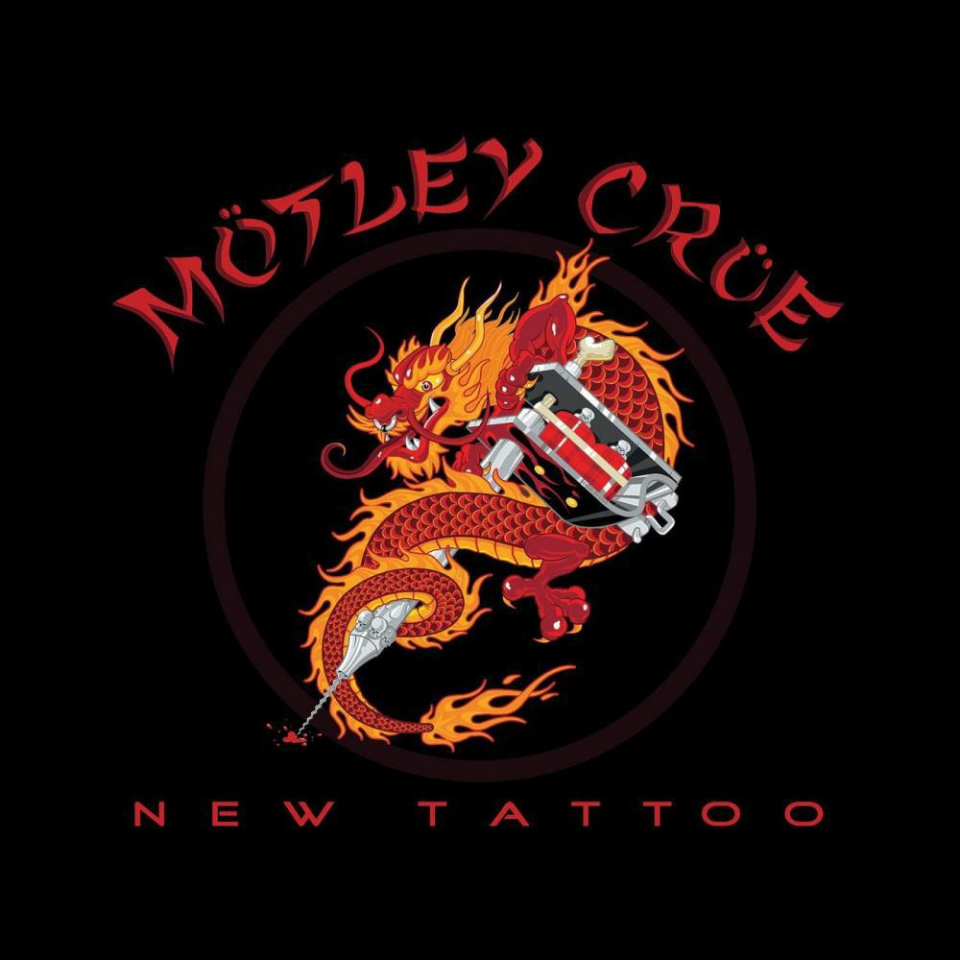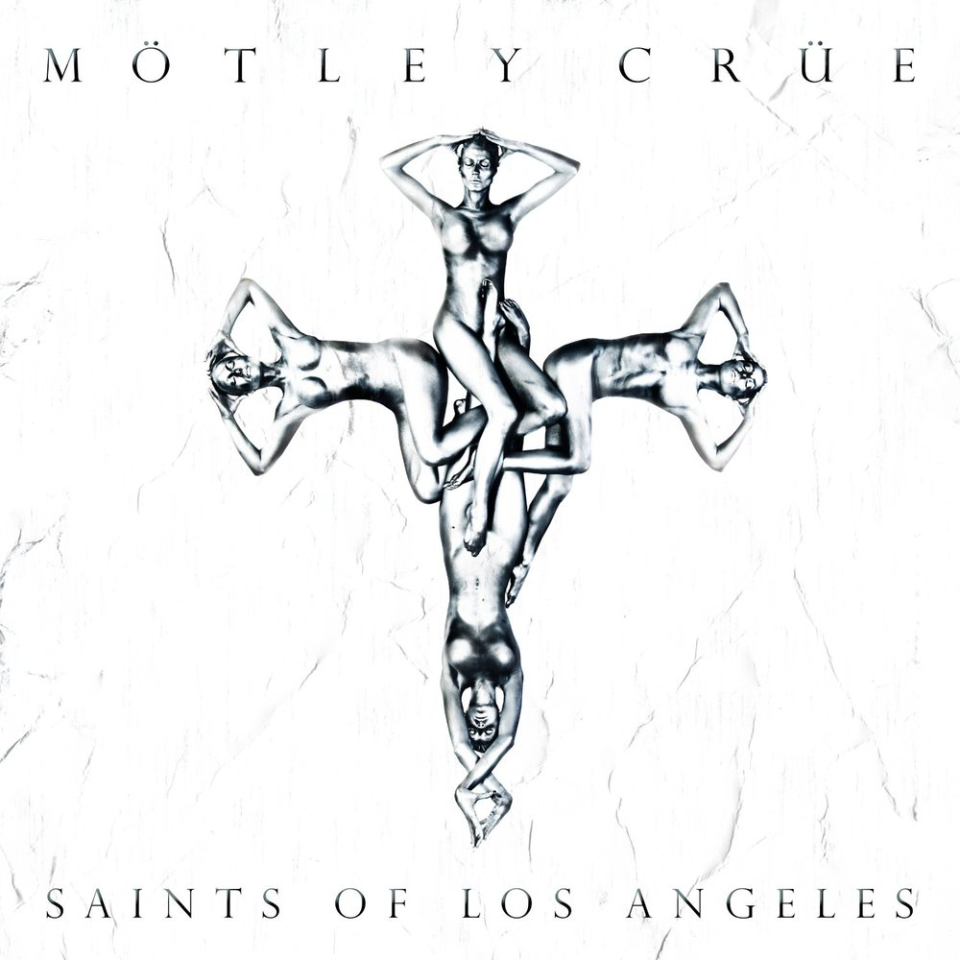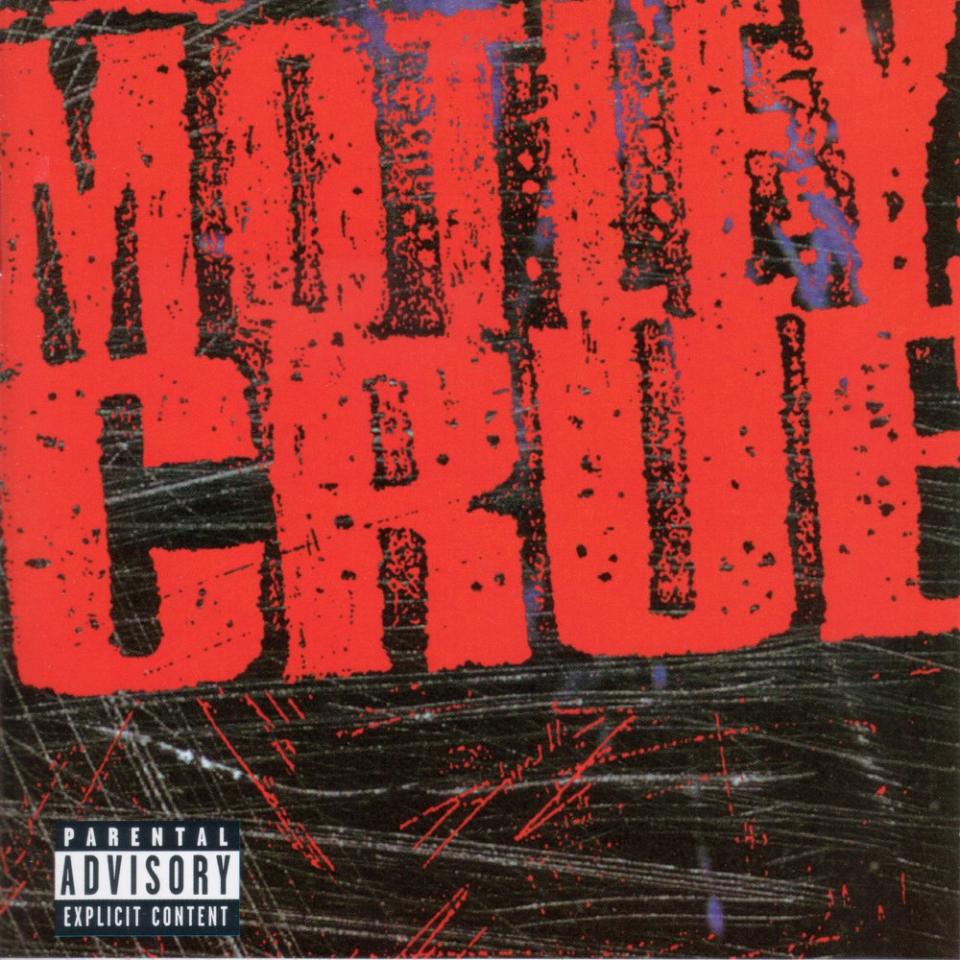Ranking Every Mötley Crüe Album From Worst to Best
Welcome to Dissected, where we disassemble a band’s catalog, a director’s filmography, or some other critical pop-culture collection in the abstract. It’s exact science by way of a few beers. This time, we follow Motley Crue’s career from their debut, 1981’s Too Fast for Love, to their last album, 2008’s Saints of Los Angeles.
A few years after retiring as a touring band, Mötley Crüe are back in the spotlight with the new Netflix movie The Dirt, a film adaptation of the tell-all biography of the same name. It portrays a band that peddled moral depravity and was met with monetary reward; a band whose primary songwriter overdosed on heroin, was revived at a hospital and then left home to do more smack; a band whose drummer had tumultuous relationships with actresses and models; a band whose singer was behind the wheel in a car crash that killed a fellow musician. However questionable the band’s behavior — bad enough that there’s no way they could find success as a new outfit in 2019 — focusing on their debauchery ignores the quality of the band’s music.
Ostensibly one of the leaders of the glam-metal movement that dominated ’80s radio and MTV, Mötley Crüe played more furiously than their peers. No band better embodied the decrepitude submerged beneath the Sunset Strip except for maybe Guns N’ Roses, who are their juniors. The Crüe took influence from glam bands like Sweet and arena rock acts such as Aerosmith and Cheap Trick but zeroed in on the most simple elements of those sounds in a punk-like fashion, which may be why “Shout at the Devil” and other songs have aged so well. Simple machines seldom break.
They left the technical virtuosity to bands like Van Halen, and the polished aesthetics to bands like Poison. With their rudimentary-but-effective songs, mostly written by bassist Nikki Sixx, they had more musically in common with Venom than most glam acts — a comparison that their overtly sexist lyrics and flirtations with satanic imagery only underline.
Still, the band’s musicianship often gets overlooked. Guitarist Mick Mars eschewed flash in favor of tasteful, bluesy licks; drummer Tommy Lee kept the spirit of John Bonham — and a little James Brown fun — alive in songs like “Live Wire”; bassist Sixx provided a steady low-end; and what Vince Neil lacked in vocal range he made up for in machine-gun delivery.
Famous and famously misunderstood, Mötley Crüe’s output deserves deconstruction as the new feature film The Dirt introduces the band to new audiences. — Joseph Schafer
__________________________________________________________
09. New Tattoo (2000)
The Ol’ Situation (Analysis): It’s tough to tell who the most necessary musician in Mötley Crüe is. The general weakness of their work sans Vince Neil suggests that his voice might be the secret sauce, but on New Tattoo, Neil takes some very respectable glam rock tracks and drags them down. Instead, the band’s penultimate record suggests Tommy Lee might bring the je ne sais quoi — New Tattoo is the only Crüe record he sat out. Lee opted to leave the band while serving jail time following an altercation with then-wife Pamela Anderson, but it would be inaccurate to blame his absence all on domestic issues. Though the original Crüe had reunited for 1997’s Generation Swine album, Lee and Neil found themselves at creative odds.
Without Lee, the band recruited longtime Ozzy Osbourne drummer Randy Castillo to sit behind the kit, and while his performance is serviceable, he’s no live wire. Instead, he capably keeps time on the most reactionary of Crüe’s records. Future Sixx:A.M. singer James Michael co-wrote much of the record alongside Nikki Sixx, and plays to all of his future bandmate’s most classic rock-inflected and radio-friendly ideas. Stripping out the alt-rock and industrial influences that dirtied up Generation Swine at least made the music sound more like classic Crüe, but the 11 tracks on New Tattoo bring nothing new to the table. It’s a safe listen, but nobody listens to Mötley Crüe to feel safe.
Hooks That Kill (Best Song): Randy Castillo’s sole songwriting credit in Mötley Crüe’s discography is a hidden gem. “Punched in the Teeth by Love” isn’t that sonically different from, say, “Treat Me Like the Dog I Am”, and both songs try their damnedest to reclaim some of the black magic from Too Fast for Love. The former, though, sounds genuinely nasty and punky. One could almost believe they found it on a rehearsal demo somewhere. Three and a half minutes of pumping bass and snarling guitar make this the finest — and shortest — cut on New Tattoo.
Go Away Mad (Worst Song): The Crüe bring the momentum of New Tattoo to an absolute halt by placing “Hollywood Ending,” a paint-by-numbers ballad, right after “Punched in the Teeth By Love.” As far as hair metal balladeers, Vince Neil could deliver during the verses but seldom had the pipes to make soaring high notes work for him, even in the ’80s. In 2000, his nasal howl made the chorus to this otherwise unremarkable song borderline-unlistenable. — Joseph Schafer
__________________________________________________________
08. Saints of Los Angeles (2008)
The Ol’ Situation: This was supposed to be the big comeback for Mötley Crüe. Their recently published memoir, The Dirt, was on everyone’s minds and for the first time in a decade, the original lineup of the band was in the studio together. Unfortunately, the Crüe started listening to a new generation of awful nü-metal bands and L.A. vampires who were citing them as an influence. And with the songwriting duties relegated to Nikki Sixx and members of his side project Sixx:AM, the album that emerged from this murk was a mess of winking references to their wild past and uncomfortable attempts to catch up with the then-current sound of heavy rock.
What saves Saints of Los Angeles from complete thud rock ignominy is the contributions of Lee and guitarist Mick Mars. The former has always been the band’s secret weapon; a nimble and fluid player whose dalliances with hip-hop and electronica did wonders for his ability to swing in even the most burdensome tune (and there are plenty of those here). Producer James Michael helps the cause by recording Lee’s playing, especially his fleet kick drum work, with clarity and expanse. As for Mars, if anything came out of the contributions of Sixx:AM member DJ Ashba, it was that he helped push the guitarist into some truly depraved tones while still holding true to the glammy/heavy sound that he’s called home since the ‘80s. If only the rest of the record were treated with such care and respect.
Hooks That Kill: Though it shares a title with a certain Pink Floyd tune, “Welcome to the Machine” has more in common with “Have a Cigar”, as Sixx and company gripe about the state of the music industry (“It’s so automatic/ Hocking broken plastic/ Royalties you’ll never know”). With Mars’ buzzsaw guitar work and a slightly punky edge, they could have toppled the Capitol Records building with this one. Better than suing Napster.
Go Away Mad: A special place in hell’s playlist is reserved for “Chicks = Trouble”, a truly ugly tune that puts the blame of poor business decisions, drug overuse, and STDs on the “centerfolds” that came calling when the band was at its height. Dr. Feelgood, heal thyself. Or at least try to clean the coke off the mirror every now and again so you can look a good look at yourself. — Robert Ham
__________________________________________________________
07. Generation Swine (1997)
The Ol’ Situation: Mötley Crüe wrote the majority of 1997’s Generation Swine without Vince Neil in mind, which is ironic since the record may be best known as Neil’s return to the band. From the onset, Crüe’s then-label Elektra insinuated — and later outright insisted — that the band needed Neil, but Sixx and Lee preferred writing with John Corabi, whose voice and disposition allowed the band to explore new sonic dimensions.
Generation Swine embraces the hard rock sounds of the nineties in small doses — songs like “Flush” sport grunge guitar tone and mild industrial flourishes. The sound doesn’t exactly suit Crüe, but with a little imagination, one could see Corabi making the most out of this material. Neil, in contrast, doesn’t seem to have any idea what to do with it and relies on vocal effects to give the material some much-needed drama. He only sounds at home on the ill-advised re-recording of “Shout at the Devil” near the album’s end.
Creating the record proved torturous. The band began working with Bob Rock behind the boards before firing him for overproducing the material — imagine if Metallica had followed their lead sooner. In his stead, they hired Scott Humphrey, who was then better known as a studio keyboardist. Humphrey and the band, particularly Corabi, did not see eye to eye. Corabi left, and Neil returned to sing over multiple songs the former had helped write. Just how many songs remains unclear. The Crüe claim Corabi only deserves credits for “Flush” and “Let Us Prey,” two highlights. Corabi claims he wrote something like 80% of the album, and sued the band when it was released. As such, Generation Swine can charitably be called a fascinating misfire, the kind of album that deep rock nerds can grow to love — if they imagine Corabi was singing on it.
Hooks That Kill: Picking the best song on Generation Swine is tough: none of the songs totally work, but several of them make for interesting curiosities. The synth-driven power pop of “Glitter,” though, is so synthetic and processed that it could have been any other band performing it. It sounds like no other Crüe tune, but unlike most of the record, it functions inside Neil’s vocal comfort zone. When Nikki Sixx brings his incredibly fuzzy bass tone to the fore, this song goes out of this world — if only more Sixx:Am tunes sounded like this.
Go Away Mad: Rockers writing songs about their children seldom works — someone in Mötley Crüe had to know this when they decided to slot “Brandon” at the end of Generation Swine. It’s as if they hoped listeners would think “Shout at the Devil ‘97” was a bonus track and would turn their CD players off before listening to this string section ballad sung by Tommy Lee about his son. Look upon its chorus, ye mighty, and cringe. It may be the worst Mötley Crüe song full-stop. — Joseph Schafer
__________________________________________________________
06. Mötley Crüe (1994)
The Ol’ Situation: The early ’90s weren’t an easy time for the Crüe. They had to watch Guns ‘N’ Roses get all the attention in the L.A. scene. And there were all those unwashed kids from Seattle selling millions of records and pushing them and the rest of the glam-metal bands they came up with off the magazine covers. If that weren’t bad enough, they were without a lead singer after Vince Neil was either fired or quit, depending on who you ask. So they did what any commercially minded group would do in their shoes: they wrote a bunch of songs that tried to keep up with the tectonic shifts in their industry and hired a singer with a little more grit and flexibility — John Corabi of The Scream — to fill the frontman gap.
While superior to any album they did afterward, Crüe’s self-titled disc was a valiant effort that missed the goalpost by inches. This wasn’t a band built for nuance, which left the Temple of the Dog-like “Misunderstood” and the psych-lite “Loveshine” flapping weakly in the wind. And trying to rub mud and distortion over the familiar fist pumping anthemics was not a good look. Yet, there are still a handful of songs that, if you scrubbed them up and gave Neil a swing at them, could have been classic Crüe. The band did what they had to do to see another day but at this point, they were on life support.
Hooks That Kill: “Til Death Do Us Part” was supposed to be the title track for this album, which might have given it a little boost of attention. The song deserved it, too. Featuring an unusually ruminative lyric from Sixx and Corabi that talks of taking responsibility for bad decisions while still standing firm in their beliefs, it finds the ideal way to adapt the hard rock of Dr. Feelgood to the rising tide of grunge and heavy metal.
Go Away Mad: Oh, to be a fly in the room when the band was introduced to the song “Loveshine” and Nikki Sixx had to ask with a straight face if Tommy Lee knew how to play any Indian percussion and where they could get a sitar. The sentiments are super sweet, but nothing else about this track was a good idea. — Robert Ham
__________________________________________________________





